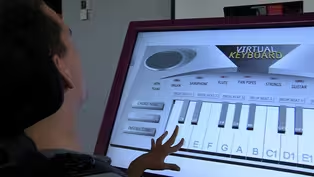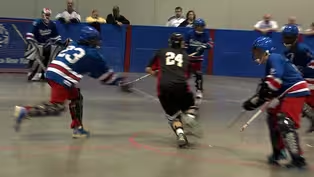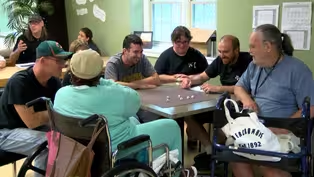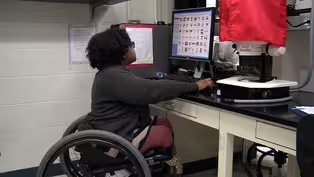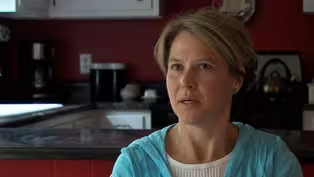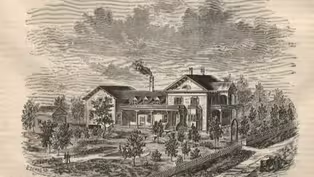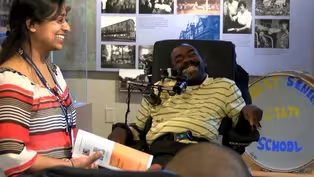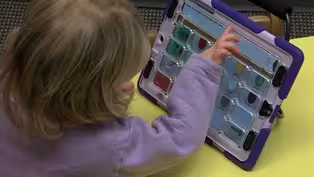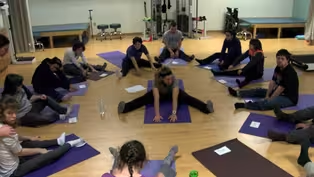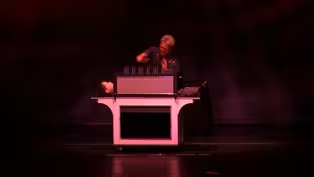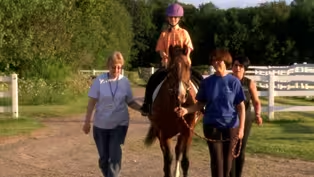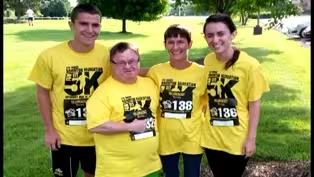Move To Include
Therapeutic Recreation
Special | 5m 27sVideo has Closed Captions
Recreational activities through adaptive sports and inclusive recreation.
Anita O’Brian is a therapeutic recreation specialist and the SportsNet manager at Rochester Rehabilitation. She loves helping people with disabilities by showing them that they can participate in recreational activities through adaptive sports and inclusive recreation.
Problems playing video? | Closed Captioning Feedback
Problems playing video? | Closed Captioning Feedback
Move To Include is a local public television program presented by WXXI
Move To Include
Therapeutic Recreation
Special | 5m 27sVideo has Closed Captions
Anita O’Brian is a therapeutic recreation specialist and the SportsNet manager at Rochester Rehabilitation. She loves helping people with disabilities by showing them that they can participate in recreational activities through adaptive sports and inclusive recreation.
Problems playing video? | Closed Captioning Feedback
How to Watch Move To Include
Move To Include is available to stream on pbs.org and the free PBS App, available on iPhone, Apple TV, Android TV, Android smartphones, Amazon Fire TV, Amazon Fire Tablet, Roku, Samsung Smart TV, and Vizio.
More from This Collection
Homework Hotline, designed for grades 4 through 12, provides the tools students need to succeed both in and out of the classroom, & supports academic achievement across a variety of learning standards. This collection is specifically curated by Move to Include & presents in-depth stories & profiles of individuals & organizations who are working to make our community inclusive & accessible for all.
Video has Closed Captions
How touch screen technology is making learning more accessible for all students. (2m 58s)
Video has Closed Captions
See how floor hockey is helping these players both in and out of the rink. (2m 16s)
Video has Closed Captions
A program that specializes in working with individuals suffering from traumatic brain injury. (4m 6s)
Video has Closed Captions
Genomics and how scientists use computers to analyze data. (2m 55s)
Video has Closed Captions
Kerrie Giesen tells us what it is like to have Multiple Sclerosis and how her life has changed. (3m 11s)
Video has Closed Captions
Many people with disabilities were sent to live in institutions away from their families. (2m 28s)
Video has Closed Captions
Charles uses eye gaze technology and a device called a Dynavox to help him communicate. (2m 21s)
Video has Closed Captions
How speech pathologists help children with communicative disorders. (2m 25s)
Video has Closed Captions
Using magic tricks to help therapists provide better care to people with disabilities. (4m 24s)
Video has Closed Captions
Equine assisted therapy. Learn about the benefits of working with horses. (2m 37s)
Video has Closed Captions
We ask Pat and his family how Down Syndrome has impacted their lives. (2m 40s)
Providing Support for PBS.org
Learn Moreabout PBS online sponsorshipHi, my name is Anita O'Brien and I am the Sportsnet manager.
I work with a program called Sportsnet that operates through Rochester Rehabilitation, and I work as a certified therapeutic recreation specialist, which means that I do adaptive sports and inclusive recreation as Sportsnet manager, I facilitate a wide variety of programs, many of those that I've mentioned before.
Some of those I directly facilitate by the power soccer coach.
I run the cycling program, so I'm actively out there assessing people's needs and matching them with correct bike.
Other programs where we partner with Rochester Yacht Club or Eagle Vale Golf Course, I don't have to run those programs as much as do the program planning, which means taking registration from people and getting their signups, making sure they know where they're supposed to go.
I'm there on the day of the program and I introduce them to the golf pro, introduce them to the adaptive equipment where there's this technicality of some of the equipment.
That's my role is to help with that assessment and matching the program for a therapeutic recreation specialist.
I had to focus on really learning us as humans under it.
Understand ending our the psychology of how we work, understanding sociology as far as how the community perceives people with and without disabilities.
The concept of disability is interesting in our field, and I think for me I've discovered that and I think therapeutic recreation as a profession says that we're more than just our illness.
So maybe we can get better from certain things.
But as a as a human being, we really we want some of the same things no matter what our body is doing, no matter if our legs move or not, no matter if we have an intellectual disability or we want to play.
My personal feeling about the field and and why I find it so rewarding and I hope that I can do it forever is that when I think about what I do, I don't think that I have a job.
I think that I'm just having fun.
And and that's that's a very rewarding feeling.
And also I think of myself as a facilitator of happiness and I think, wow, what could be better than that?
Therapeutic recreation specialists look for the ways to take a person from not just the physical stretching the arm or using the arm differently, but applying it to what a person wants to do in their day to day life.
Therapeutic recreation specialist tries to assess the needs of the individual because we're all different.
Where you are today and where I am today.
That's what the therapeutic recreation specialist is trying to assess.
I will develop a plan of action that can help you move from where you are today to whatever your goals are, whether it's learning to bowl and then learning how to access bowling in the community.
So my role would be helping you with physically teaching you the game, using any adaptive equipment, but then also teaching you to access it in the communities.
And you can continue to do what you've identified as important to you.
A lot of times our adaptive equipment is is very useful for people with intellectual disabilities or where just where the cognitive processing needs a different approach to it.
Therapeutic recreation specialist uses a modality of play and recreation to meet a person on a social, emotional, psychological, physical.
Any of those needs that they may have.
We are always looking at the the whole being, the whole person.
If you're thinking maybe about exploring therapeutic recreation, I would say it could be a good match for you.
If you want to help people continue to do something like recreating and playing and socializing.
Therapeutic recreation as a profession says that we're more than just our illness, so maybe we can get better from certain things.
But as a as a human being, we really we want some of the same things.
No matter what our body is doing, no matter if our legs move or not, no matter if we have an intellectual disability, we want to play that.
Support for PBS provided by:
Move To Include is a local public television program presented by WXXI
